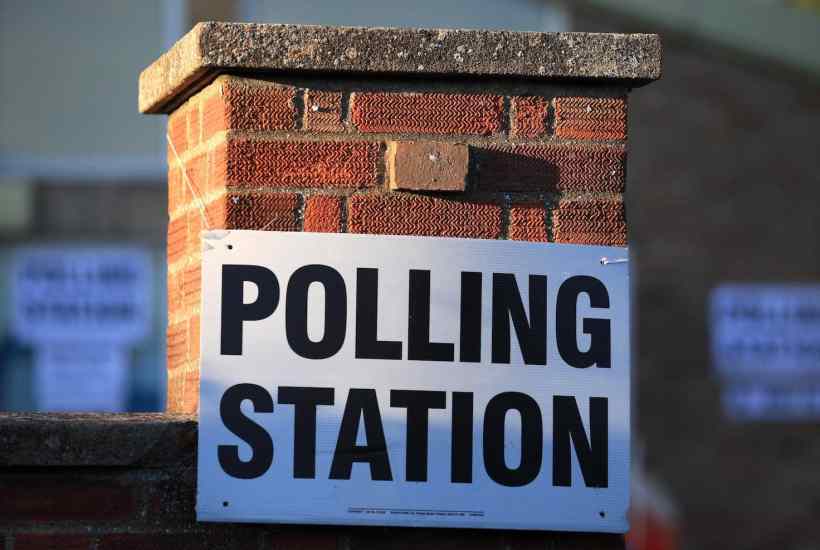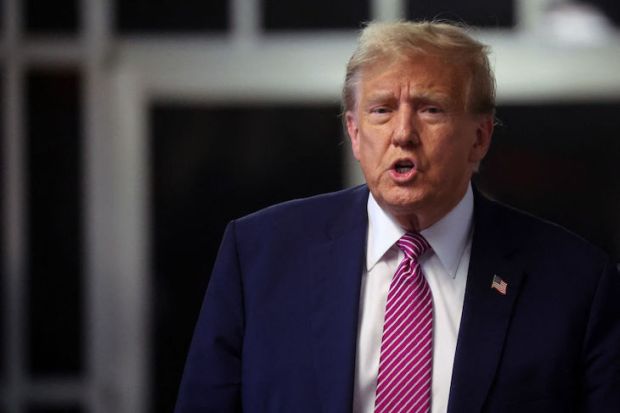Neither Liz Truss nor Rishi Sunak would name Gordon Brown as an inspiration, but I wonder if whoever becomes PM next month might take a lesson from Brown’s premiership and call a snap general election. This might sound like a frankly mad idea. Inflation is soaring and dreadful energy bills are about to hit. The Conservatives are behind Labour in the polls, demoralised and divided. Surely a new prime minister going to the country would be committing spectacular electoral suicide? Maybe. But politics is all about making the least bad choice, and I can’t help wondering if an immediate election wouldn’t be the least bad option for that new PM.
Back to Brown. Younger readers might not know and even older ones may have forgotten the misjudgement that doomed him as prime minister: the decision not to call an early election. Brown became PM in June 2007, succeeding Tony Blair and inheriting a third-term Labour majority of 66. As soon as he got the top job, his team floated the idea of an autumn election but Brown lost his nerve and abandoned his plan after polls showed the Conservatives had a fighting chance of beating him. His obvious dishonesty in denying both the plan and the reason for dropping it cracked Brown’s carefully-polished image as a noble and trustworthy man. And then the financial crisis that was just beginning in the summer of 2007 developed into a generational crash. Brown led Labour to defeat in 2010, a prime minister who never won a general election.
Debating the ‘what if’ of Brown’s cancelled election is a fine parlour game for Westminster. Some people reckon Brown’s Labour would have beaten David Cameron’s Conservatives, leading those Tories to remove Cameron and abandon ‘modernisation’. Others, such as Phil Cowley, reckon the 2007 result was less certain and could have either gone against Labour or resulted in a hung parliament where Brown might have had to make a coalition deal with Ming Campbell’s Lib Dems. The more important point for 2022 is this: when Brown abandoned that election in October 2007, no one knew quite how bad the coming financial crisis was going to be. Yes, Northern Rock had collapsed but the phrase ‘global financial crisis’ hadn’t yet entered the language and there was not yet any obvious impact on living standards. Nor had the eurozone’s sovereign debt crisis put Labour’s fiscal record (remember Greece and ‘the deficit’?) at the top of the political agenda. If Brown had known in 2007 the full scale of the crises that would come in the next couple of years, would he have reached a different decision about his early election?
That’s the question to consider in 2022 as we get a new prime minister. Because that prime minister will have a much better idea of the future than Brown did, a much clearer view of the pain and turmoil that is to come. That new PM will know that winter will be truly horrible. Talk of £500-a-month energy bills as inspiring civil unrest is not overdone. It’s not getting enough attention, but this year’s winter crisis in the NHS could be spectacularly grim too. The new PM will also know that even if they find a way through the dreadful winter, there is every chance that 2023 and 2024 will be economically grim too, as inflation persists and growth sags. So the Brown-inspired question that the new PM must ask on taking office is: will things get better than this for me?
Hence I wonder if that leader will give some thought to a very quick election in early October. My assumption is that the new PM will enjoy a modest honeymoon bounce in the polls. They will be able to dominate the news cycle for days with announcements of their own choosing. Labour will continue to be squeezed to the edges of the story and the national conversation. A very short election campaign would allow the new PM to make a simple pitch to the public: ‘I’m new and I’d cut your taxes to help you pay your bills. What would Labour do?’
This would, of course, be a huge risk for all sorts of reasons, which is why it won’t happen: you’d need to be almost insanely self-confident to fight your way to the premiership and then immediately gamble it on a coin-toss election. But in politics as in chess, the best move is often the one your opponent least wants you to make. And I suspect that Keir Starmer’s Labour would much rather fight a general election after the coming cost-of-living disaster than before it. If today’s Tories aren’t really ready for a snap election, Labour probably isn’t much better prepared either.
If this hypothetical election campaign is dominated by Tory promises of (fiscally dubious but probably still popular) personal tax cuts, what would Labour’s matching offer be? The Tories have already stolen the windfall tax and without something of similar simplicity and popular appeal from Labour, the Conservative machine would seek to frame the election choice as: ‘Do you want Tory tax cuts or Labour dithering?’ And again, consider the alternative for the new PM: struggle on through months or years of misery and anger over living standards while trying to hold together a Conservative party where a majority of MPs didn’t even vote for you in the final ballot. Then go to the country asking voters to give the Tories yet another term after what, 14 years in power?
Put it another way, if you became prime minister knowing there was a generationally severe financial and political crisis approaching the country in a few months, would you want to fight a general election after that crisis or before? If you thought that this era’s poll tax moment was approaching, would you wait for it to hit, or seek your own mandate before it arrives? Correctly or not, Westminster folk memory records Gordon Brown as having thrown away his best chance of political victory when he binned his early election plan in 2007, putting him and his party on course for defeat in 2010. I wonder if in due course we’ll remember 2022’s new prime minister in the same way.
Got something to add? Join the discussion and comment below.
Get 10 issues for just $10
Subscribe to The Spectator Australia today for the next 10 magazine issues, plus full online access, for just $10.




















Comments
Don't miss out
Join the conversation with other Spectator Australia readers. Subscribe to leave a comment.
SUBSCRIBEAlready a subscriber? Log in